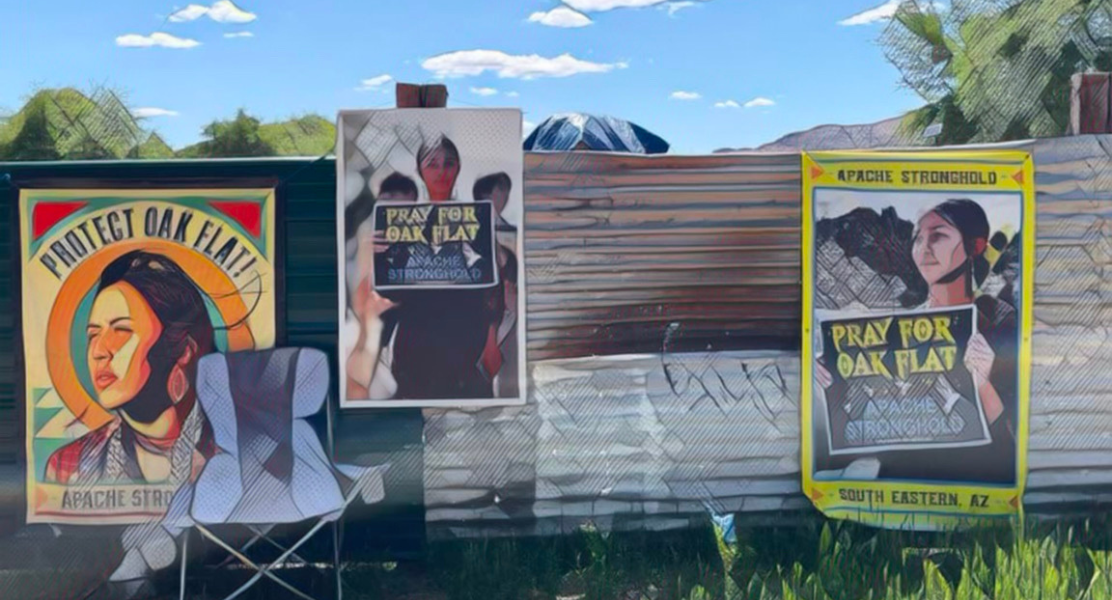U.S. Supreme Court declines Oak Flat petition, allows for federal transfer of sacred land to mining company

The fight to save sacred land in the southwest won’t happen at the U.S. Supreme Court — at least, not right now.
Over an impassioned dissent from Justice Neil Gorsuch, the U.S. Supreme Court declined to take up the petition of Apache Stronghold challenging the federal government’s transfer of sacred land to a mining company. The 6-2 vote denying review (Justice Samuel Alito recused himself) leaves in place the 9th U.S. Circuit Court of Appeals’ sharply divided ruling rejecting the Apache Stronghold’s religious liberty claims under the Religious Freedom Restoration Act (RFRA).
The 9th Circuit said that although preventing access to religious exercise does generally qualify as a “substantial burden” under RFRA, that rule does not apply to actions involving a “disposition of government real property.” The government is free to use its own property as it sees fit, the court held, provided it does not discriminate among religions or coerce individuals into acting contrary to their beliefs.
As Justice Gorsuch wrote, that “poses a question of exceptional importance” and thus should be heard more fully by the Court.
Indeed, the 9th Circuit’s definition of “substantial burden” may raise more questions than it answers. For the Tribes in the Southwest who for centuries have used this land for religious ceremonies and a place to find medicinal plants, food, and water, the consequences of this transfer will be grave.
Mining the land known as Chí’chil Biłdagoteel — loosely translated in English as “Oak Flat” — will not be a delicate operation; it will devastate the property. The excavation will create a massive hole that would be larger than the National Mall in Washington, D.C., and nearly twice as deep as the height of the Washington Monument, resulting in a toxic waste dump that will poison the groundwater in the process.
That the court decided to allow this to proceed without so much as a full discussion of the legal issues is extremely disappointing for all who understand that not all sacred spaces have steeples. Justice Gorusch added:
While this Court enjoys the power to choose which cases it will hear, its decision to shuffle this case off our docket without a full airing is a grievous mistake—one with consequences that threaten to reverberate for generations. Just imagine if the government sought to demolish a historic cathedral on so questionable a chain of legal reasoning. I have no doubt that we would find that case worth our time. Faced with the government’s plan to destroy an ancient site of tribal worship, we owe the Apaches no less. They may live far from Washington, D. C., and their history and religious practices may be unfamiliar to many. But that should make no difference. “Popular religious views are easy enough to defend. It is in protecting unpopular religious beliefs that we prove this country’s commitment to . . . religious freedom.”
This is a situation closely followed by religious liberty advocates — such as BJC and the Cooperative Baptist Fellowship (CBF) — working to save Oak Flat, including through legislative and administrative actions.
On Friday, June 6, the U.S. District Court for Arizona will be hearing the latest effort of the San Carlos Apache Tribe to protect their sacred land. A hearing will take place at 10 a.m. MT in Phoenix (1 p.m. ET / Noon CT), and CBF is inviting all to join in prayer at that time.
This hearing is an important one for the Tribe. Publication of a Final Environmental Impact Statement (FEIS) is required before the part of Tonto National Forest — which includes Oak Flat — can be transferred to the mining company Resolution Copper, and the Trump administration said it intends to publish the FEIS as early as June 16. Stay tuned as this story continues to develop.




